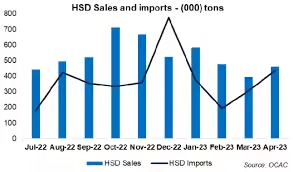As state treasurer, Vivek Malek spearheaded Missouri’s divestment from Chinese companies within its main retirement system, positioning Missouri among the first states to take such action. Malek is emphasizing this Chinese divestment as he seeks reelection in the August 6 Republican primary, facing challengers who are also criticizing financial ties to China.
The Missouri treasurer’s race underscores a growing opposition to China, deemed a major threat to the U.S. by numerous candidates this election cycle. Indiana and Florida have also restricted their public pension funds from investing in specific Chinese companies. Similar legislation has been vetoed in Arizona and proposed in Illinois and Oklahoma.
China, the world’s second-largest economy, has seen substantial U.S. investment. From 2018 to 2022, U.S. public pension and university endowments invested approximately $146 billion in China, as reported by Future Union, a nonprofit pro-democracy group led by venture capitalist Andrew King. The report highlighted that over four-fifths of U.S. states have at least one public pension fund investing in China and Hong Kong.
Divergent Views on Divestment Policies
Andrew King criticizes continued investments in China, citing intellectual property theft and competition against U.S. technology. “There should be more shame for maintaining these investments,” he asserts. Conversely, some economists and investment officials warn that state divestment policies could harm investment returns for retirees.
Ben Powell, executive director of the Free Market Institute at Texas Tech University, argues, “Most of these policies are unwise and would make U.S. citizens poorer.” The National Association of State Retirement Administrators also opposes state-mandated divestments, suggesting such decisions should come from the federal government based on security or humanitarian interests.
Federal and State-Level Actions
The U.S. Treasury Department recently proposed a rule to prohibit American investments in Chinese AI systems with potential military applications. President Joe Biden blocked a Chinese-backed cryptocurrency mining firm from owning land near a Wyoming missile base, citing national security risks.
Historically, states, cities, and universities have blacklisted investments in regions or sectors, such as South Africa during apartheid or tobacco companies due to health concerns. More recently, some states divested from Russia due to its war against Ukraine.
Broader Implications and State Initiatives
State pension divestment policies reflect a broader trend of U.S.-China confrontation. Clark Packard of the Cato Institute notes that these policies complicate federal management of U.S.-China relations. Indiana enacted a law in 2022 mandating gradual divestment from specific Chinese companies, significantly reducing its investment exposure in China.
In Missouri, Treasurer Malek successfully pushed for Chinese divestment in the state’s retirement system after an initial defeat. This decision is a focal point of his reelection campaign, where he criticizes China’s role in the fentanyl crisis and vows not to support Chinese investments.
Malek’s main challengers, state Rep. Cody Smith and state Sen. Andrew Koenig, also back divestment from China. Smith highlights the blurred lines between public and private sectors in China, while Koenig points to increasing risks in Chinese investments.
Florida, under Governor Ron DeSantis, enacted a law requiring a divestment plan from Chinese-owned companies by September 1. As of May, Florida still held around $277 million in Chinese entities.
Arizona Governor Katie Hobbs vetoed a bill mandating divestment from companies in countries deemed foreign adversaries by the federal government, citing potential economic harm to the state.



